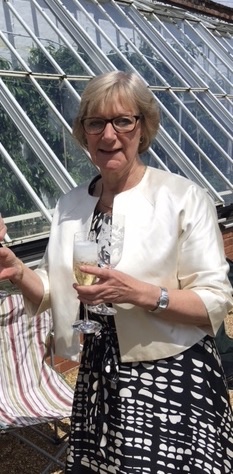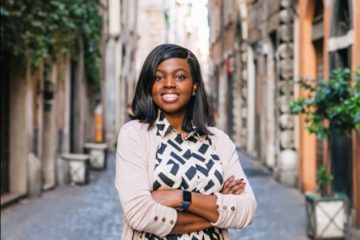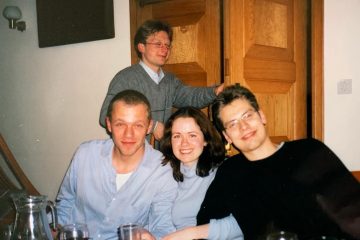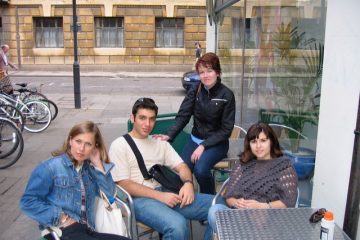First and foremost, I am a doctor. I always wanted to be a doctor, and after a long career in clinical medicine I can honestly say it is core to who I am.
However, ironically, for someone who as Clinical Dean in the University was responsible for medical education in Cambridge from 2003 – 2020, what I never wanted to be was a Cambridge medical student! In the early 1970’s, there was no Clinical School, and the Natural Sciences Tripos followed by moving elsewhere for clinical studies was not for me. So I happily took myself to the beautiful Edgbaston campus of the University of Birmingham, where I ended up staying for 12 years, as a student, junior doctor and research fellow in Endocrinology. I was, and remain, passionate about Endocrinology. The treatment of hormonal disorders, it’s a fascinating clinical specialty that encompasses patients from cradle to grave, from people with very common disorders through to those with some of the rarest diseases known! Little did I know that my choice of specialty would ultimately lead me to St Edmund’s.
I left Birmingham to become a Lecturer in Medicine at St Mary’s Paddington and subsequently became Senior Lecturer, then Reader and Deputy Dean for Medical Education at Barts and the London Medical School. During those years medical education was undergoing a huge shift in order to address the highly traditional, hierarchical, and sometimes downright bullying experiences that medical students underwent in the name of “education”! A group of us from across the UK started to study and embrace educational theories, applying them to learning medicine. We laid the foundations for both undergraduate and postgraduate medical education as it exists today in universities and the NHS.
My clinical and educational interests came together in 2003 when my friend and endocrinology colleague, Sir Stephen O’Rahilly, alerted me to the fact that the new full-time role as Clinical Dean in Cambridge was being advertised. Not long after I came to the Clinical School, I had a phone call from Sir Brian Heap, Master of St Edmund’s and an eminent endocrine scientist who I had previously met through my clinical academic interests. He suggested that I might like to become a Fellow of St Edmund’s. The rest, as they say, is history.

Being a Fellow at St Edmund’s is a pleasure and a privilege! Over the years I have served on various committees including several stints on Council. Committee membership is the best way to get close to how the College works and enables you to meet colleagues from many academic disciplines. I was delighted to be elected Vice-Master last year and one of my aims is to encourage more Fellows (particularly new and younger ones!) to take on committee roles and have their say in running the College.
Two of the most important things that we stand for at St Edmund’s are widening participation and equality, diversity and inclusivity. Personally, for me, those are extremely important. I am proud and delighted that we now have Graduate Entry Medical Students in St Edmund’s who bring a diversity of previous academic activity and life experiences to medicine in Cambridge. I hope that every one of them has the same incredible experience in their chosen profession as I have been fortunate to have!



0 Comments